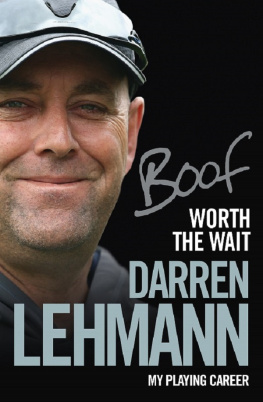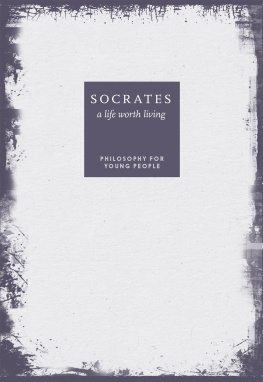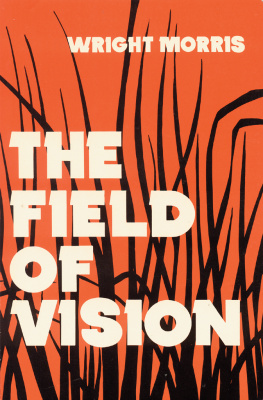Part One
I was born during a violent thunderstorm; and since the date was the third day of February, this disturbance of the elements struck the popular imagination with dramatic force, as being, in the strict sense of the word, phenomenal. Nobody, I hasten to add, related the portent to my personal entry into the twentieth century A.D. The time was not long after 1 a.m. of the day of the funeral of Queen Victoria. It was only myself, as I started to emerge from the animal-vegetable swaddlings of infancy, whom the coincidence impressed. It seemed to give me an unexpectedly distinguished cachet: almost the reflection of a royal nimbus.
One day, around the age of five, sitting in my kindergarten class with a tray before me of soft white sand in which letters of the alphabet are to be traced, I call out suddenly to Miss Davis and confide in her what a notable birthday is mine.
Very interesting dear; but pay attention now, please. Pretty Miss Davis, whom I adore, to whom I have publicly, gratuitously offered my passport, lays it down, patiently, as an irrelevance, thereby obliterating whatever it was that had seemed all at once to startle the dark backward of my identity with such a flash. Now I feel pinched in my chest because the other children stare at me; their cold eyes make a nothing of me, a WRONG SUM AGAIN. Rub her out, cry baby cry
Yet a few months later a similar urge wells up and over-masters me. This time it is in drill. March, march, round and round the schoolroom to a rollicking tune from Miss Davis at the piano. Halt! The music breaks off. I call out: Miss Davis! on a reckless note.
Yes, what is it?
I dont like being in the middle.
What do you mean, dear? Puzzle for Miss Davis. I have in fact been top of the class this week and in consequence I lead the march.
Well Im not the oldest and Im not the youngest. Now I have qualms. Helens older and Baby (my sister Beatrix) is
Ah yes, I see. She breaks into a soft chuckle. Well, Im the middle one too, in my family. I think its rather nice. Like the jam in the middle of a sandwich. Attention children, forward march ! Heads up! Swing your arms!
Forward I march, leading a Band of Hope, to the tune of John Browns Body. When it comes to glory glory Allelujah! we belt it out with a will, I loudest of all for once, and most rejoicing. For lo! I am absolutely on the map, the sweet surprise of it! I am linked with Miss Davis, middle one of the family, I am the jam between the bread slices, given status and protection.
Miss Winifred Davis is tall, willowy and pale, with liquid, faintly protuberant eyes of violet flecked with green, and a cloud of ash-blonde hair. Her voice is low and caressing. Soon she will vanish from our lives. One day we break up for the summer holidays always a day of sportive leaps and chatter; we kiss her good-bye until next term; and unaccountably she is not clasping us to her full-bloused breast (smocked tussore) with smiles and jokes, but speechless and raining tears.
Why is Miss Davis crying?
Dont you know! I know!
She is going to be married. Doesnt she want to be? Yes, she does want to be. Then why ? She will be Mrs. Tinkler. At this we burst into hilarious shrieks: we bandy the name about, competing in flights of wit. But perhaps she weeps because she doesnt like her new funny name; and now I have sympathetic qualms, and try to choke back my laughter. I see that hers is a natural distress, for the funniness inherent in the syllables casts an unsuitably derogatory spell upon her, and upon our relations with her, and her tears seem to say that she is being down-scrambled by our mockery, doesnt like it, cannot help it. It is a shame.
We are assembled on the porch of our school, namely the brick and stucco pavilion built by our parents in the garden to house our education; and all of a sudden from nowhere, Mr. Tinkler materializes. He stands beside Miss Davis, immensely tall, thin, dark, with flashing spectacles. His arm is linked in hers; she is beaming, blushing, mopping her eyes. He has come to fetch her away, fetch her away. Some nurse or parent present to collect her charge calls out officiously: Three cheers for the bride and bridegroom! Hip, hip! and feebly we pipe: Hurrah!
But wont she be coming back? No, of course not, says someone heartily. She is going to live in Birmingham, and have lots of children of her own to look after. Then, shall I never see her again?
The question is unasked, unanswered. Strange, strange to relate, I did see her once again, many years later; but I dont think I shall never be sure if she saw me. I am in my twenties, the author of Dusty Answer and quite often photographed. I am lunching alone in my London Club, and my eye is caught by two figures at a far table in the opposite corner; an attractive fair fresh-faced young man, and a thin faded-looking lady in black. Presently this young man gets up, comes towards me, and addresses me with a mixture of shyness and easy charm. Might I be Rosamond Lehmann?
I thought I recognized you, he says. My mother cut out your photograph. She was always so interested. She taught you once. The name is Tinkler.
He is pleased that I respond so eagerly and remember so vividly, but the conversation proceeds with growing awkwardness. I follow his uncertain glance over his shoulder. Can it be ? She is not looking at me or at him but fixedly ahead of her. She has two flaming patches on her thin cheek-bones and gives an impression of tremulous disarray. Yes, that is my mother, says this charming young man. Im afraid she isnt at all well just at present. My father died suddenly in the spring and it shook her terribly. She had a breakdown. But I hope, he added, resolutely cheerful, shes over the worst.
Was he asking me to come and speak to her? or delicately explaining that it would be wiser not to? I shall never know; and must for ever accuse myself of cowardly failure to find out.
I charge him with my love to her; he is to say I have never forgotten her kindness to me, and her beauty. He nods thanks and returns to his own table.
I steal one look before I hurry from the room and from the building. Dislocation, preoccupation are evident; a couple precariously tethered to their situation. The pathos of filial stiff upper lip strikes me forcibly.
Her dual image shocks, compels my imagination many days: the recollected one, allegra, in its silvery nimbus; this one dolorosa, lustreless; the discrepancy between the young and the older image is bridged by the tears of both.
Dearest Miss Davis, you were too vulnerable. Never more did a figure remotely resembling yours shine in the interminable, sometimes glum and eccentric path of my educational years. Quite soon after, I was learning to play the piano with Mademoiselles gold watch placed alternately on the back of the left hand and the right, to maintain the correct flat position. When the watch slipped off she caught it and smacked my hand with a ruler. Quite soon, instead of being comforted when I fell down and cut my knees, I was being put to bed as a punishment for tearing my stockings.















